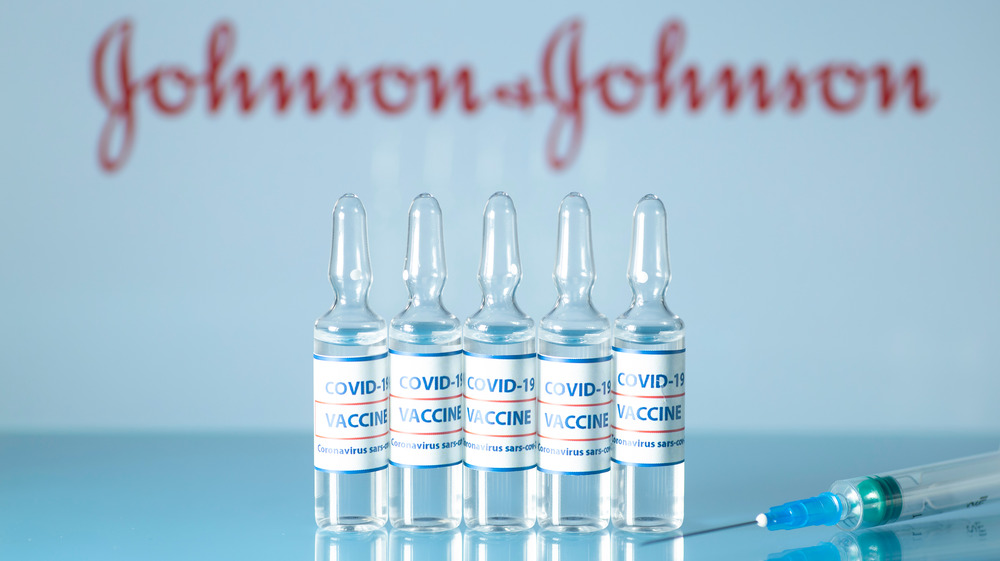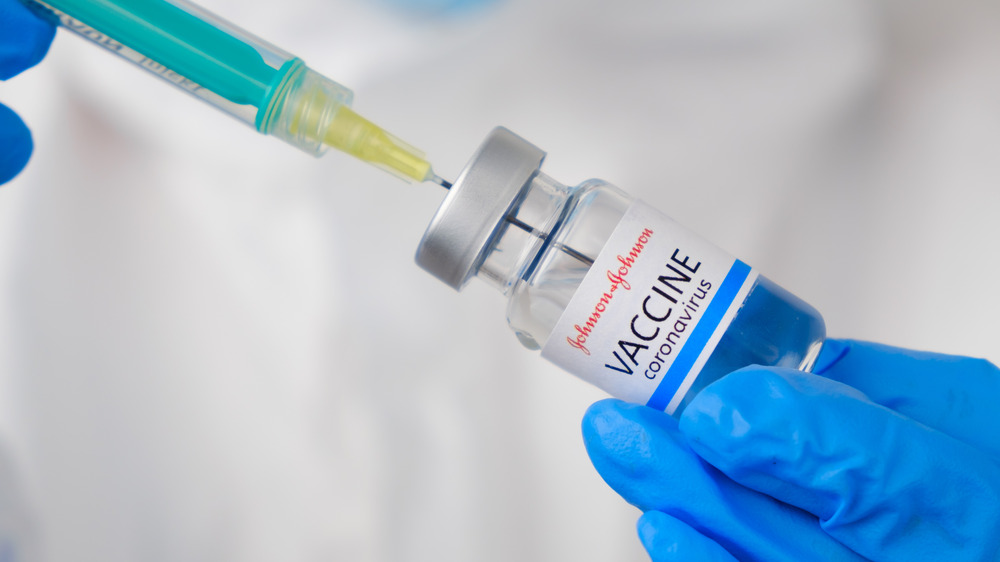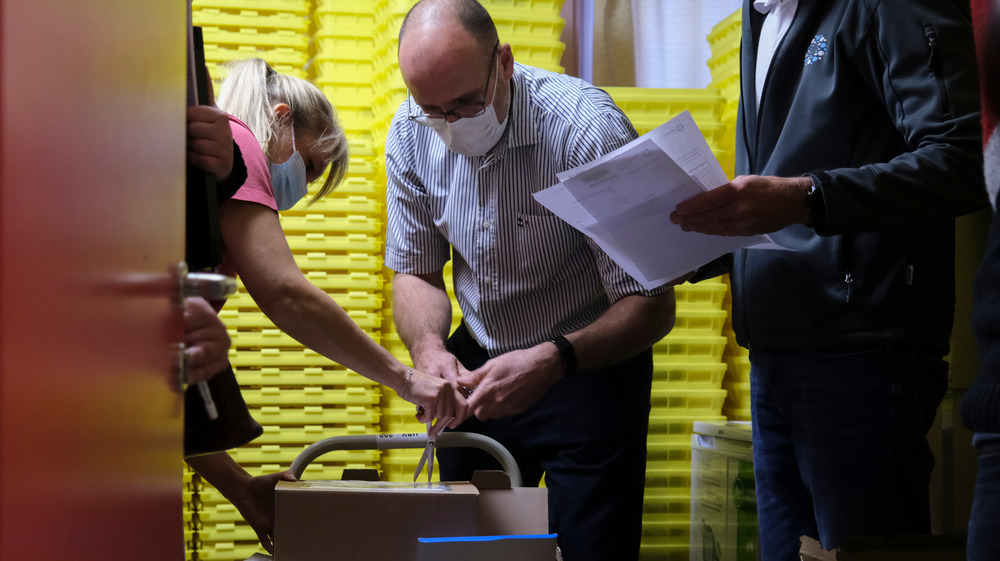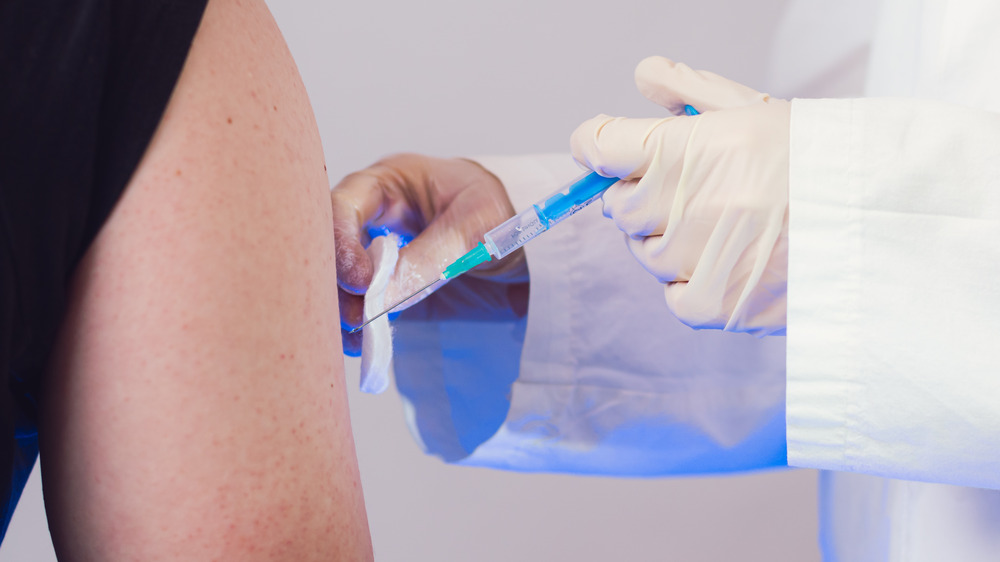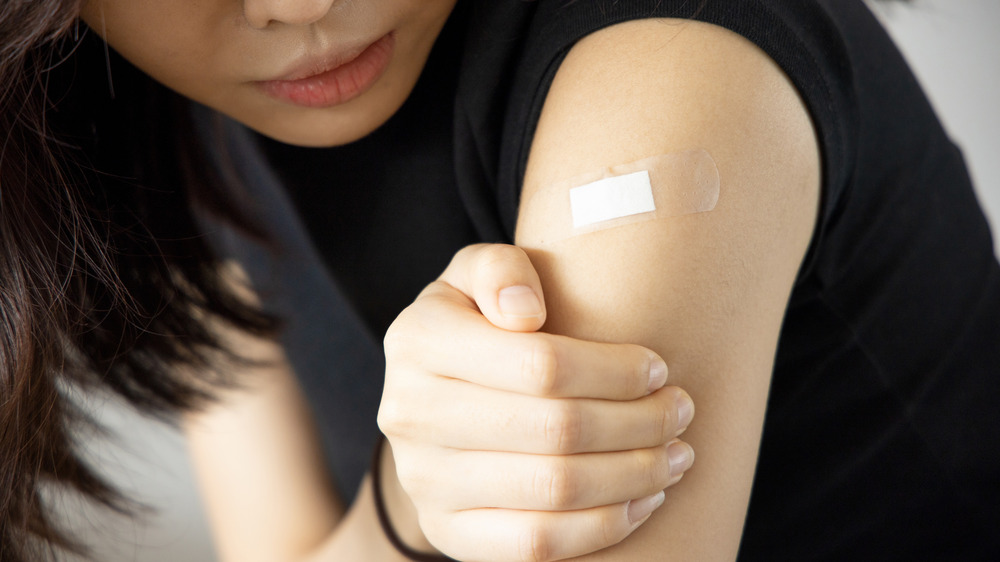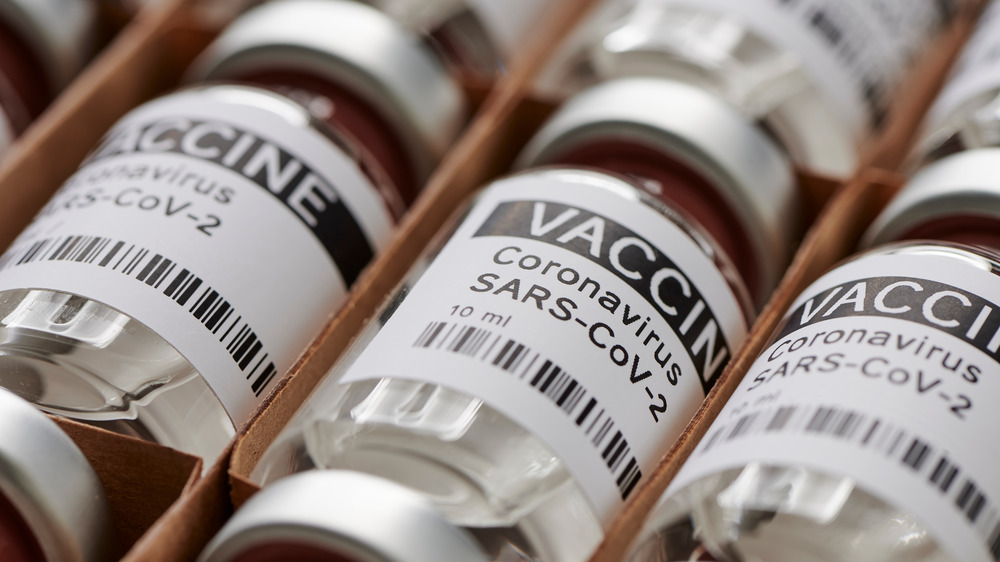When You Get Johnson & Johnson's COVID-19 Vaccine, This Is What Happens To You
Many are beginning to feel more hopeful that the ongoing pandemic's most destructive days are in the past. As the COVID-19 vaccinations continue to roll out, more and more options have become available to the public after being given the green light of safety, and a lot of us are starting to see glimpses of our communities returning to normal. According to Bloomberg, in the United States, 175 million doses of the COVID-19 vaccine have been given to date. And just in the last week, there was an average of 3.04 million doses administered per day.
One of the vaccine options available was developed by the American multinational corporation Johnson & Johnson. The vaccine was made accessible to the public on February 27th, 2021 after the Food and Drug Administration (FDA) issued an Emergency Use Authorization (EUA) for the single-dose injection, says Johnson & Johnson. If this is the vaccine you are hoping for, or have registered to take, here is some information you may find useful.
You will only have to have one shot
The Johnson & Johnson vaccine requires one dose instead of two separate doses. This makes it a standout, as the other options are only offered by giving two separate rounds of injections for full effectiveness. Dr. Leana Wen, an emergency physician and professor at George Washington University, explains to NPR why this is a huge plus for many wanting to get vaccinated. "If there are individuals who may not like needles, who may have concerns about returning for a second shot, who may not want the inconvenience of scheduling a second appointment, or who may be concerned that there isn't enough supply of the vaccine at the moment for a second shot — for those individuals, that convenience of being done [after one dose], fully vaccinated, is really important," she says.
Another advantage of this vaccine is that it is "fridge stable" which means it can be shipped and stored in refrigerator temperatures, claims Healthline.
You can help cut down on community transmission
Dr. Jarod Fox, an infectious disease physician at Orlando Health, tells Healthline why this will make it quicker for the large population in the U.S. to become vaccinated for the COVID-19 virus. "This is going to allow for easier delivery to different sites in the country and enable a greater proportion of the country to be vaccinated," he explains.
It is with the hope that the quicker the vaccines can be administered, the slower the virus will spread throughout society. Though you can still contact and spread the virus after receiving the COVID-19 vaccination, the number of people infected at a time will likely lessen as more vaccinations are administered over time. Johnson & Johnson's COVID-19 vaccine is proven to be 85 percent effective against severe cases of COVID-19. Full effectiveness happens 28 days after the shot is administered. Yes, you must wait a while, but this is also true with the other available vaccines on the market. It is also worth noting that the impressive 85 percent effectiveness rate was lowered to 66 percent for individuals over 60 years of age with health conditions like diabetes and heart disease, claims Healthline.
You will likely be protected from severe illness
If you are wondering how the Johnson & Johnson vaccine compares to the other two available vaccines, Moderna and Phizer, in relation to protecting against the more severe symptoms of COVID-19, the armor is looking to be equal. Dr. Kirsten Bibbins-Domingo, chair of the department of epidemiology and biostatistics at the University of California, San Francisco tells NPR how the three vaccines are compared to one another. "When we look at the thing we probably care about most — making sure that we don't end up in the ICU or dying — the efficacy of the three vaccines is virtually identical," she says.
And it may only be one shot, but its side effects are similar to the two other vaccines currently administered in the U.S. Symptoms include pain, swelling, and redness around the area of injection. There are also reports of headache, muscle aches, and flu-like symptoms.
Your side effects will be similar to other COVID vaccines
These might not be pleasant, but the symptoms generally only last the first few days post-vaccination, and are rarely reported to be experienced past the seven-day mark.
And though it is not common, there have been more serious side effects such as blood clots and anaphylaxis known to occur with the Johnson & Johnson vaccine as well as the other two options. Tom Shimabukuro, from the Centers for Disease Control and Prevention (CDC), explains via Healthline. "Anaphylaxis does occur, though rarely, and there are no safety signals for any serious adverse events," he says. This is likely why individuals are requested to wait about 15 minutes for monitoring before they can leave their vaccination appointment.
According to NPR, it is younger individuals who are more likely to experience side effects of the vaccination as they have stronger immune systems. As much as you don't want to experience fever or any of the more severe symptoms, you may be worried if you feel nothing out of the ordinary. But no matter what age you are, it is not a cause for worry if you don't experience any side effects.
You may be able to get it outside the U.S.
Currently, the Johnson & Johnson vaccine is mainly given in the United States, but that is set to change. According to France 24, the single dose COVID-19 vaccine will be made available in Europe on April 19th, 2021. The 27-nation members of the EU have recently signed orders for 200 million J&J doses with an option for more. This is fitting as it is worldwide pandemic and the need to slow down cases of infection both in the U.S and internationally is necessary for the health and safety of civilization.
Dr. Wen shares her views to NPR about the end goal of the entire vaccination process saying, "We also want to put an end to this pandemic as soon as we can. And that means getting some level of immunity into as many people as possible and as quickly as possible."

